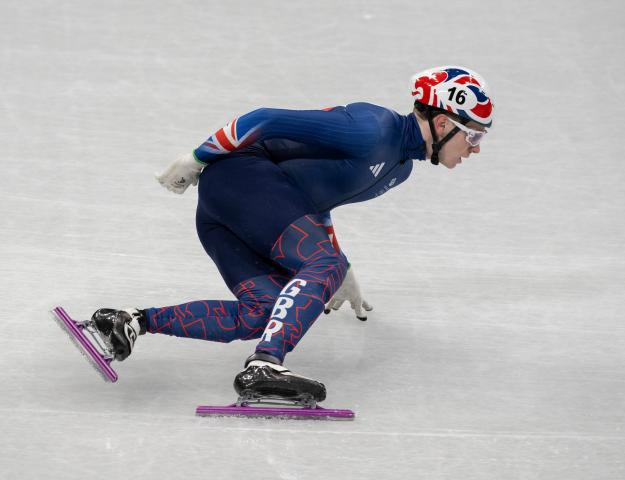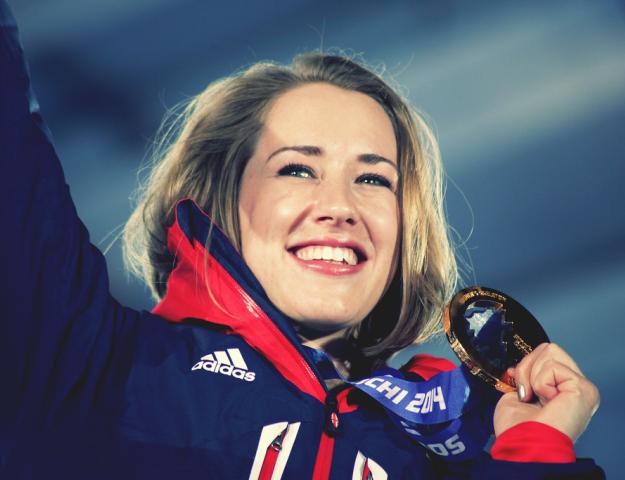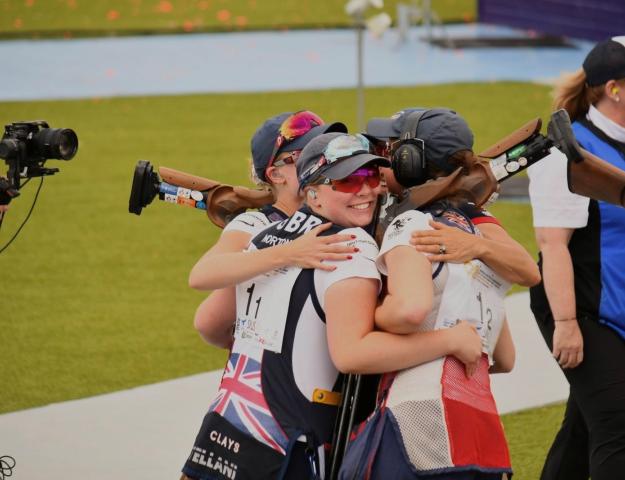- HOME
- NEWS & INSIGHTS
- THOUGHT LEADERSHIP
- what-accessibility-and-inclusion-means-me-john-dickinson
John Dickinson-Lilley, a retired British and European champion para skier who campaigns for disability and LGBTQ+ rights, shares with us what accessibility and inclusion means to him and reflects on the challenges he faced during his career….
“I think accessibility and inclusion is really important in sport. Sport has so many benefits for people, it generates a sense of community, it can generate a sense of well-being. It gives opportunities to people to develop confidence and make new friends, whether that’s participation or high-performance level.
“There’s so much that sport offers and it’s only right that those opportunities are open to different people across communities. Whether you’re disabled, LGBTQ+, a woman or a person of colour, you should be able to access sport in exactly the same way as anybody else.
“I’m a Stonewall Sporting Champion which means that I’m an ambassador for the Rainbow Laces campaign. It started off as a football campaign but has grown and built into an all-sports campaign. The reason I took up Stonewall’s invitation to join the team was because I was the first out LGBTQ+ ski racer in Britain, abled or disabled.
“For me, it didn’t make sense that there were all of these people in this sport and yet there’s only one person that’s out. It was about being visible and using my platform to help other people and show other people that there are other people like that, so in the future people who are thinking about skiing - or any other sport - go: ‘there are people just like me who are able to perform at the highest level.’
“When I was skiing there wasn’t anyone else internationally who was an out ski racer. That’s very isolating and I think it means that you are not able to be your authentic self. There’s a part of you that isn’t able to engage and I think that impacts on your performance. Being able to be your authentic self, knowing what I do now four years on from retirement, would I be able to perform better? Absolutely.
“It’s not just about the athlete, it’s about NGBs, it’s about teams, creating cultures and environments where LGBTQ+ people and people from other groups feel able to be their authentic self. There’s still work to do right across sport in that space as well.
“Being a visually impaired athlete there are lots of challenges, and some of the biggest challenges aren’t in fact your impairment, but other people’s perspective. One thing that I have come across a lot is people’s ideas that if you’re a para ski racer, for example, you are somehow slow and that you ski in a special way.
“My top speed was in fact 64 mph, which is pretty quick by any measure and certainly faster than most able-bodied skiers. I think there’s a real perception issue and I came across that issue quite a lot.
“On a really practical basis, cash sponsors in particular don’t look at para athletes first, they look at able-bodied athletes first who may not actually have the main kind of resource that I had as I did as British champion, European champion and Alpine Cup winner, world No.7.
“Some of my able-bodied compatriots at the time didn’t have that level of resource but they were the people getting the sponsorship. I think sports and sponsors need to look really carefully and think why that is.
“Sport is more open now. Obviously Gus Kenworthy came out in 2014, having just won a silver medal at Sochi. That was huge for the skiing world and that was hugely important for me on a personal level. You’ve got people like Tom Daley, who are very visible in sport as well, and I think that kind of visibility not only helps other LGBTQ+ young people, but also begins to change the culture and dynamic within sports and teams.
“Before, maybe it wasn’t as easy to talk about your sexuality as it might be, it was one of those things you might avoid in an interview with the media. Slowly we are challenging some of those barriers
“I think there are some real challenges out there for NGBs to tackle. I think building inclusive cultures around para teams, I think para teams need to be given parity with able-bodied teams, that’s parity of support, parity of funding, parity of sponsorship. I think all of those things are particularly important if you’re thinking about making that transition from development to high-performance level.
“Organisations like SportsAid providing such a clear platform in really enabling the issues to be discussed, having opportunities for people like me to talk about my experiences and the barriers I faced, are really critical. SportsAid addressing accessibility and inclusion begins to change the debate about those things. I think it’s amazing and I’m really excited to be able to support it.”
SportsAid Week 2023 is a dedicated week of fun and awareness-raising based around the theme of accessibility and inclusion. Please visit www.sportsaid.org.uk/our-work/sportsaid-week.



